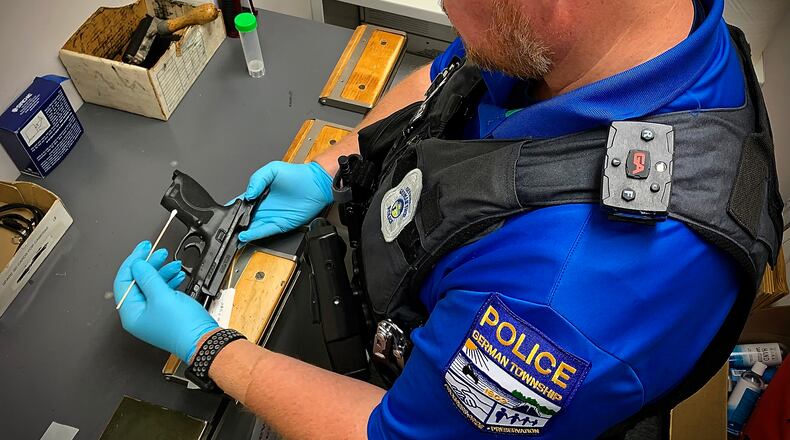Andzik, the president of the Montgomery County Association of Police Chiefs, said his and other departments are still figuring out the process they’re going to use to get DNA evidence they once took the Miami Valley Regional Crime Lab’s DNA section to the Bureau of Criminal Investigation’s lab in London. The local lab closed its DNA section last month after facing trouble hiring a section leader.
“I have nothing going on in London unless I am going to a training,” said Andzik, who noted that London is about 30 minutes further from German Twp. than Dayton. “It’s a little harder and it has an impact on the budget to some extent. Not a huge impact, but an impact, when you’re talking about time and gas.”
The Miami Valley Regional Crime Lab’s DNA section handled more than 3,000 cases since January 2020 with more than 80% coming from Montgomery County law enforcement departments. Departments from 21 counties submitted evidence to the Miami Valley Crime Lab’s DNA section over the past two years.
The regional crime lab will continue to work with law enforcement on other priorities, including drug and property crime, and analyzing fingerprints.
Andzik said his department used to drop off about 25 samples to be tested per year. He said the Miami Valley Regional Crime Lab used to do any DNA testing the department asked, but there are some restrictions with BCI.
A BCI DNA Evidence Submission Policy issued late last month says that unless a weapon was stolen, touch DNA requests for property crime evidence will not be accepted.
“Touch DNA is defined as an evidence item that has had brief skin contact with an individual,” the policy says. “Items that may contain saliva, such as beverage containers, cigarette butts, or items that have undergone prolonged contact such as clothing or tools are not considered touch DNA items and may be submitted for testing.”
The policy says the lab will test suspected blood from the point of entry connected to a property crime.
Ohio Attorney General Spokesperson Steven Irwin said the lab will work with local law enforcement officials to help solve crimes.
“BCI wants to test the items with the greatest probative results in order to efficiently process each case and get answers for the submitting agency. A conversation up front is always helpful and welcomed,” Irwin told the Dayton Daily News.
Kettering Police submitted other types of evidence to BCI in the past, Public Information Office Tyler Johnson said. He said officers will continue to collect DNA samples to get them tested.
Before evidence is submitted to a lab for testing, Johnson said it’s approved by a lieutenant to ensure it is a valuable piece that could lead to results. He doesn’t anticipate changes.
“We’re still going to take it and it will be reviewed as always,” Johnson said.
Dayton Police said previously that it started sending DNA evidence to the BCI lab in London twice per week. However, smaller departments don’t have the personnel to send officers there as regularly.
Departments in western Montgomery County have discussed teaming up and assigning one person to transport evidence from multiple agencies, Andzik said. But chain-of-custody issues will probably prevent that.
“We haven’t come up with a set-in-stone way, we are still kind of playing it by ear,” he said.
Changing DNA labs also means learning a new system to submit evidence, Andzik said. But while the local DNA section closing adds challenges to investigations timelines, he said everyone involved is doing their best to make the transition as easy as possible.
About the Author

